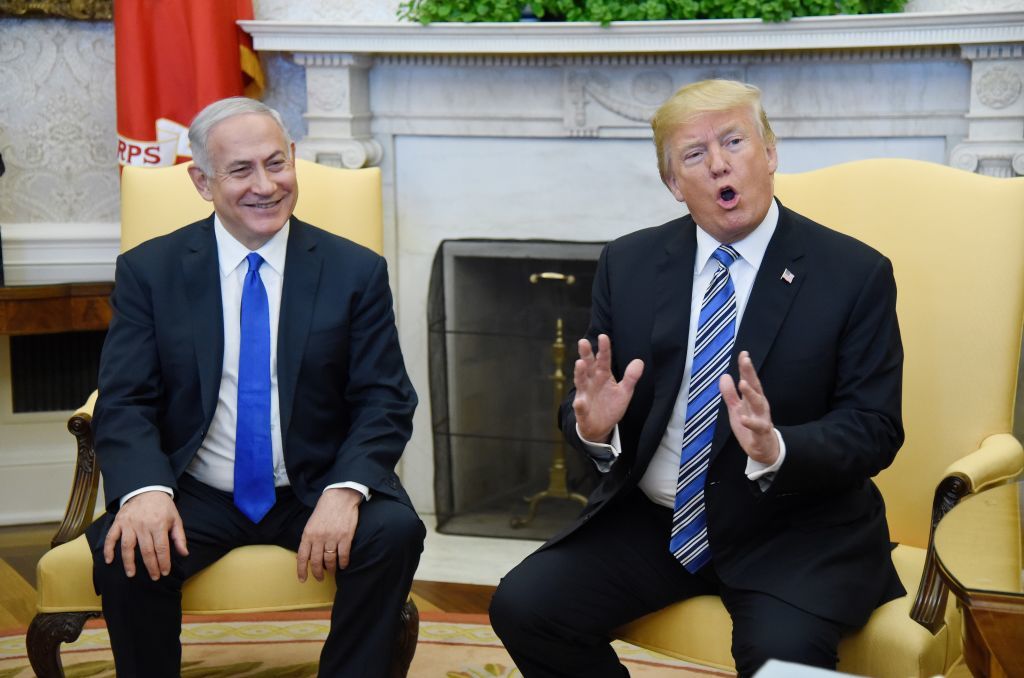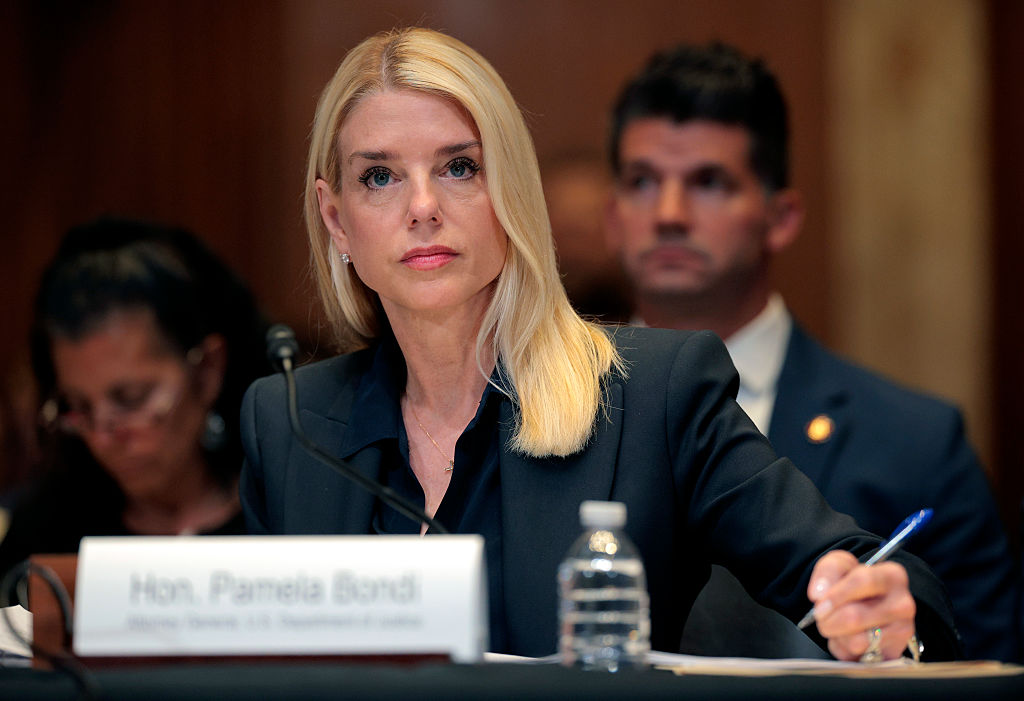Just how long will the love affair between Donald Trump and Benjamin Netanyahu last, before it descends into a series of angry tweets between Washington and Jerusalem? Some might be surprised even to hear the question asked, given how Bibi could not hide his excitement before a meeting with the U.S. president in the Oval Office in March this year, when he likened Trump to President Harry Truman, who decided to recognise the new state of Israel in 1948 despite opposition from his close aides. That wasn’t all. Netanyahu also elevated Trump on a level with Lord Balfour, who issued the Balfour Proclamation that recognised the rights of the Jewish people in their historical homeland, and with Cyrus the Great, the Persian king who proclaimed that the Jewish exiles in Babylon could rebuild the Jewish Temple in Jerusalem.
For the moment at least, Donald Trump may seem to be the best friend Israel has had in the White House since Ronald Reagan, and a world away from the previous incumbent. It was Netanyahu’s bad luck to begin his second term as Israel’s Prime Minister just as Barack Obama was starting his eight years as President. The liberal and metrosexual African-American president and the conservative Israeli PM and former commando fighter treated each other with disdain – so much so that when the White House pressed Jerusalem to freeze the building of Jewish settlements in the West Bank, Netanyahu came close to campaigning for Mitt Romney, the Republican who ran against the Democratic president in 2014.
By contrast, Trump, like Reagan in the 1980s, is the darling of the one of the most pro-Israeli force in American politics and a powerful wing of the Grand Old Party:, the Christian Evangelists. He is a businessman from the city with the largest Jewish population in the world where many real estate magnates are Jewish, not to mention that his daughter converted to Judaism and is married to a Zionist observant Jew, which means that he has three cute Jewish grandkids.
Like Reagan, Trump perceives Israel to be a pro-western bastion in the Middle East and a reliable U.S. strategic ally in the struggle against the global threat du jour, radical Islam in its Sunni (ISIL) and Shiite (Iran) manifestations. When Trump appointed his Jewish son-in-law Jared Kushner as an advisor and decided to relocate the American embassy in Israel from Tel Aviv to Jerusalem, it did not come as a big surprise.
The trouble is that Trump, like Reagan before him, is sooner or later going to discover the constraints on his ability to align U.S. interests with those of Israel. Reagan found this out when, disregarding Israeli opposition, he decided to sell advanced AWACS fighter plans to the Saudis and joined the Arabs in condemning Israel at the United Nations Security Council after Israel’s attacks on the nuclear reactor in Iraq.
Then Israel invaded Lebanon to try to crush the PLO, following a “yellow light” it received from the pro-Israeli Secretary of State Alexander Haig, who convinced Reagan that destroying the pro-Soviet terrorist group was in America’s interest. However, against the backdrop of mounting civilian casualties in Lebanon and concerns that the Israeli operation would harm U.S. position in the Middle East, Reagan pressured Begin to withdraw from Beirut and later fired Haig. And at the end of his second term, Reagan Administration officials had actually opened a dialogue with the PLO.
History of course does not repeat itself exactly, and U.S. strategic position in the Middle East today is different than it was in the 1980s. But the US’s relationship with Saudi Arabia and the other Arab-Sunni states remains central to securing its interests in the region. And no military alliance with Israel could substitute for that. US interests favour a dialogue between Israel and the Arab oil states, leading to the establishment of diplomatic relations between Israel and the Saudi Arabia and the formation of a military alliance – a sort of a Middle Eastern NATO that would include Israel and the pro-American Arab-Sunni states. However, that is going to remain a fantasy without an Israeli-Palestinian agreement.
In fact, Saudi Arabia remains committed to the Arab Peace Initiative of 2002 which calls for normalising relations between the Arabs and Israel, in exchange for a full withdrawal by Israel from the occupied Arab territories, including East Jerusalem. It specifically demands that Israel withdraw from the Golan Heights and accepts the relocation of millions of Palestinian refugees into Israel – conditions that not even a moderate Israeli government would accept, let alone the current right-wing one headed by Netanyahu.
Trump and Kushner claim they are going to negotiate the “deal of the century” between the Israelis and the Palestinians. But they are going to find out, sooner rather than later, that the Egyptians and the Saudis will not accept an agreement that does not require Israel to make painful concessions of the issues of the holy sites in Jerusalem and the Palestinian refugees.
So what happens when Trump’s new best friend Mohammad bin Salman, the Crown Prince of Saudi Arabia, tells him it would be a pity if an agreement between Israel and the Palestinians could not be reached because of some “little things” – like removing a few Jewish settlements in the West Bank, or allowing a few thousands Palestinian refugees to return to their homes in Israel or accepting Arab control the Muslim holy sites in Jerusalem?
Those “little things” are derailing not only the prospects for the “deal of the century” but the formation of an anti-Iran front. They could also ignite a new Palestinian Intifada which would play directly into Iran’s hands. Trump has already demonstrated his impatience with “little things” that stand between him and a great political or diplomatic victory. Consider the military exercises between South Korea and the United States that he decided out of the blue to cancel in order to ensure the production of the global media event in Singapore.
Netanyahu, of course, is not going to like it if Trump starts pushing for the removal of Jewish settlements on the West Bank or accepting Arab control of Muslim holy sites in Jerusalem. So don’t bet against the love affair between the US President and the Prime Minister of Israel ending in an angry, 3am tweet which reads along the lines: “Hey. Bibi. You think you can push me around like Obama? Are you planning to come here and address Congress and attack me? Just found out #NoMoreMoneyForMovingEmbassy. And also phone call from #Rouhani. Very STRONG leader! Wants to #MakeIranGreatAgain” We’re meeting in #Qatar,”

























